Research and Preparation

Research and Preparation involves determining your budget and needs, researching different car models and their market value. This helps in making an informed decision and ensures a smooth car buying process.
A. Determine your budget and needs

Determining your budget and needs is a crucial step in the car buying process. Consider factors like your financial capacity, intended use of the car, and any specific features you require. This will help you narrow down your options and make a more informed decision.
B. Research different car models and their market value
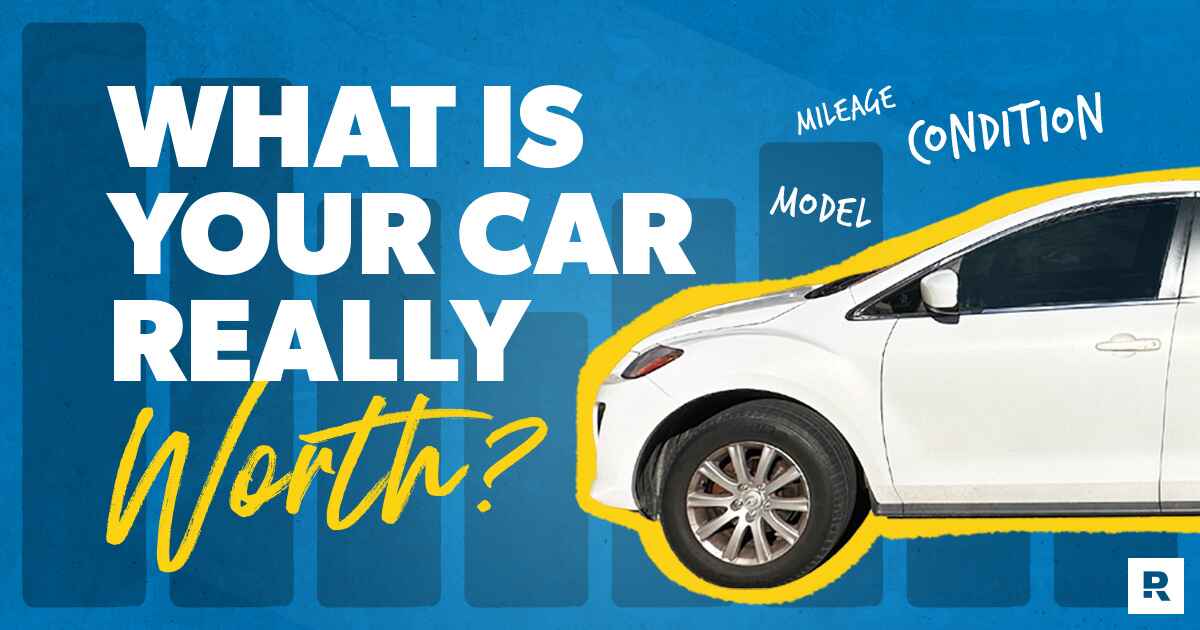
Researching different car models and their market value is essential to ensure you are getting a fair deal. Look up prices online, compare prices from different sellers and dealers, and consider factors like mileage, year, and condition of the car. This will help you determine the average market value for the car models you are interested in and enable you to negotiate a better price.
Inspection and Test Drive

When inspecting a used car, the buyer should carefully examine the exterior and interior for any signs of damage or wear. During the test drive, they should assess the car's performance, checking for any strange noises, vibrations, or issues with acceleration, braking, and steering.
A. Check the exterior and interior condition of the car
:max_bytes(150000):strip_icc()/7-mistakes-avoid-when-buying-used-car.asp-V1-dbc23496b5164854a581f89b4683a5b5.jpg)
Before purchasing a used car, the buyer should thoroughly inspect the exterior and interior. Look for any signs of damage, such as dents, scratches, or rust. Inside, check the condition of the seats, dashboard, and electronics.
B. Take the car for a test drive to assess its performance

When test driving a used car, the buyer should pay attention to its performance, including acceleration, braking, steering, and overall comfort. This helps to ensure that the car meets their expectations and is in good working condition.
Vehicle History and Documentation

To ensure a used car's reliability, buyers should obtain the vehicle's history report and review all necessary documentation, including maintenance records. This helps to reveal potential problems and verify the car's maintenance history.
A. Obtain the vehicle's history report
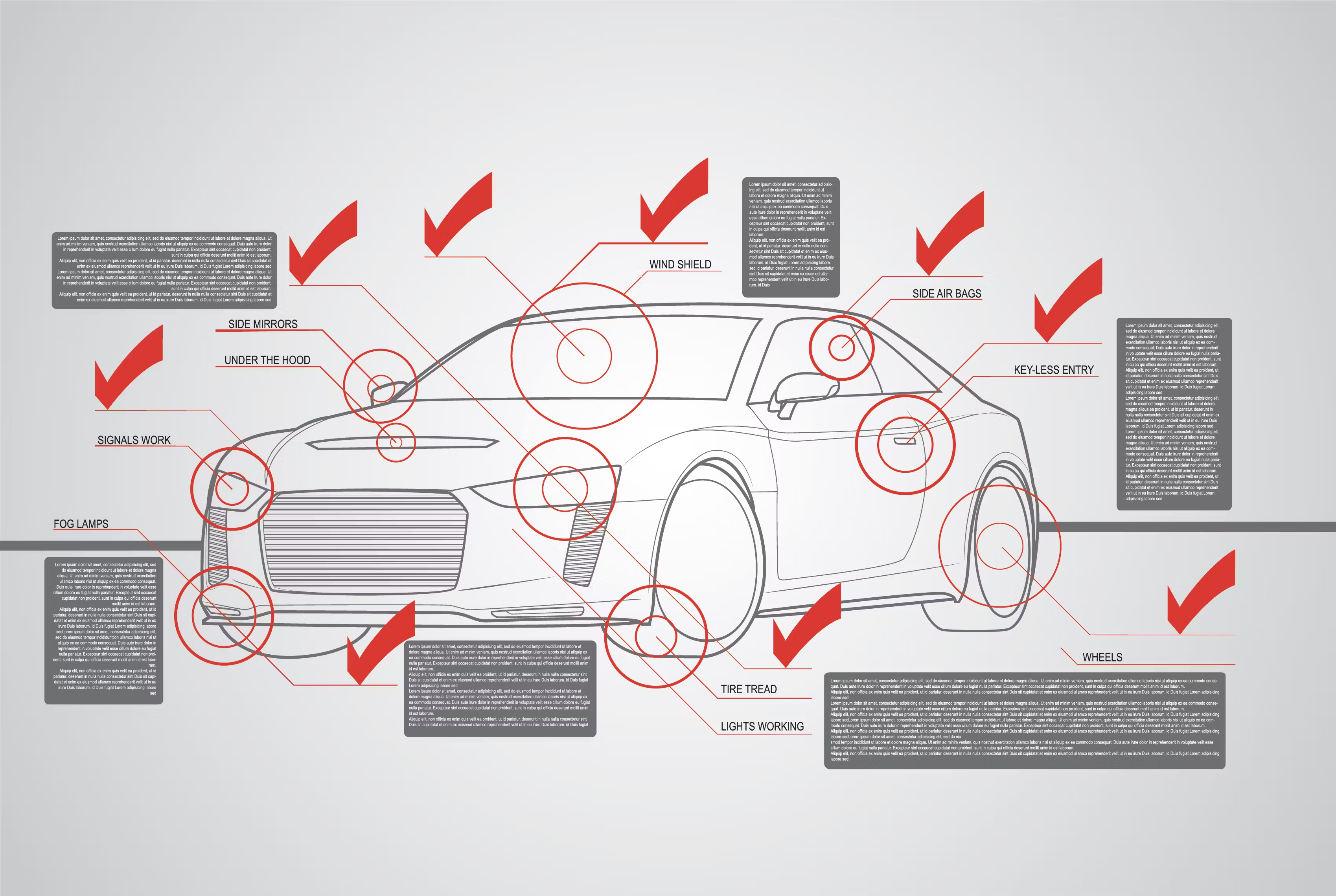
When purchasing a used car, it is important to obtain the vehicle's history report to uncover any potential issues or accidents the car may have been involved in. This report provides valuable information about the car's past and helps buyers make an informed decision.
B. Review all necessary documentation including maintenance records

When purchasing a used car, it is crucial to review all necessary documentation, including maintenance records. This helps determine the car's maintenance history and any potential issues that may require attention. By thoroughly examining these records, buyers can make informed decisions and ensure they are investing in a well-maintained vehicle.
Negotiation and Purchase
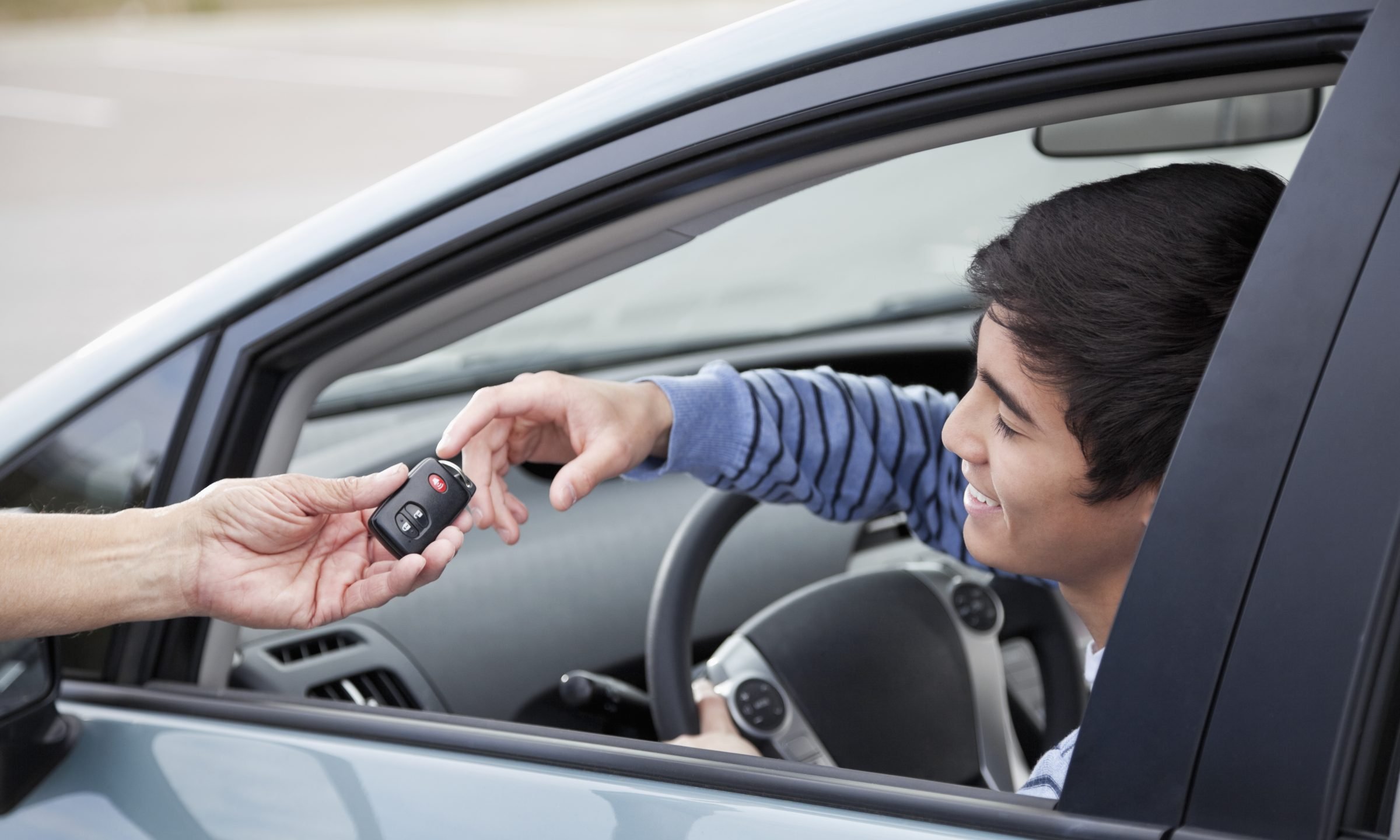
When it comes to negotiating the price of a used car, buyers should rely on their research and inspection findings to make informed decisions. By diligently reviewing the car's condition, history, and market value, buyers can confidently negotiate the price with the seller. It is important to remember that negotiating does not always mean getting the lowest price possible; it is about finding a fair deal for both parties involved. Once a final price has been agreed upon, buyers should ensure that all paperwork, including the bill of sale, title transfer, and any additional documents, is in order before finalizing the purchase. Paying attention to these details can help ensure a smooth and secure transaction.
A. Negotiate the price based on your research and inspection

Buyers should use their research and inspection findings to negotiate a fair price. By understanding the car's condition and market value, they can confidently negotiate with the seller, aiming for a mutually beneficial deal.
B. Ensure all paperwork is in order before finalizing the purchase

Before finalizing the purchase of a used car, buyers should ensure that all paperwork is in order. This includes reviewing and completing necessary documents such as the bill of sale, title transfer forms, and any warranties or service contracts. It is crucial to read and understand all the paperwork to avoid any future issues or disputes. Additionally, buyers should confirm that the seller has provided all necessary documentation, such as the vehicle's title, registration, and maintenance records. By ensuring that all paperwork is in order, buyers can protect themselves and have a smooth and legally sound transaction.
Title Transfer and Registration

After purchasing a used car, the buyer needs to transfer the title to their name and register the car with the appropriate authorities. This ensures legal ownership and compliance with registration requirements.
A. Transfer the title of the car to your name

To legally transfer the title of the car to your name, complete the necessary paperwork and submit it to the appropriate DMV or motor vehicle agency in your region.
B. Register the car with the appropriate authorities

Once you have completed the title transfer, it is important to register the car with the appropriate authorities. This typically involves submitting the necessary paperwork and paying any required fees to the DMV or motor vehicle agency in your region.
Maintenance and Ownership
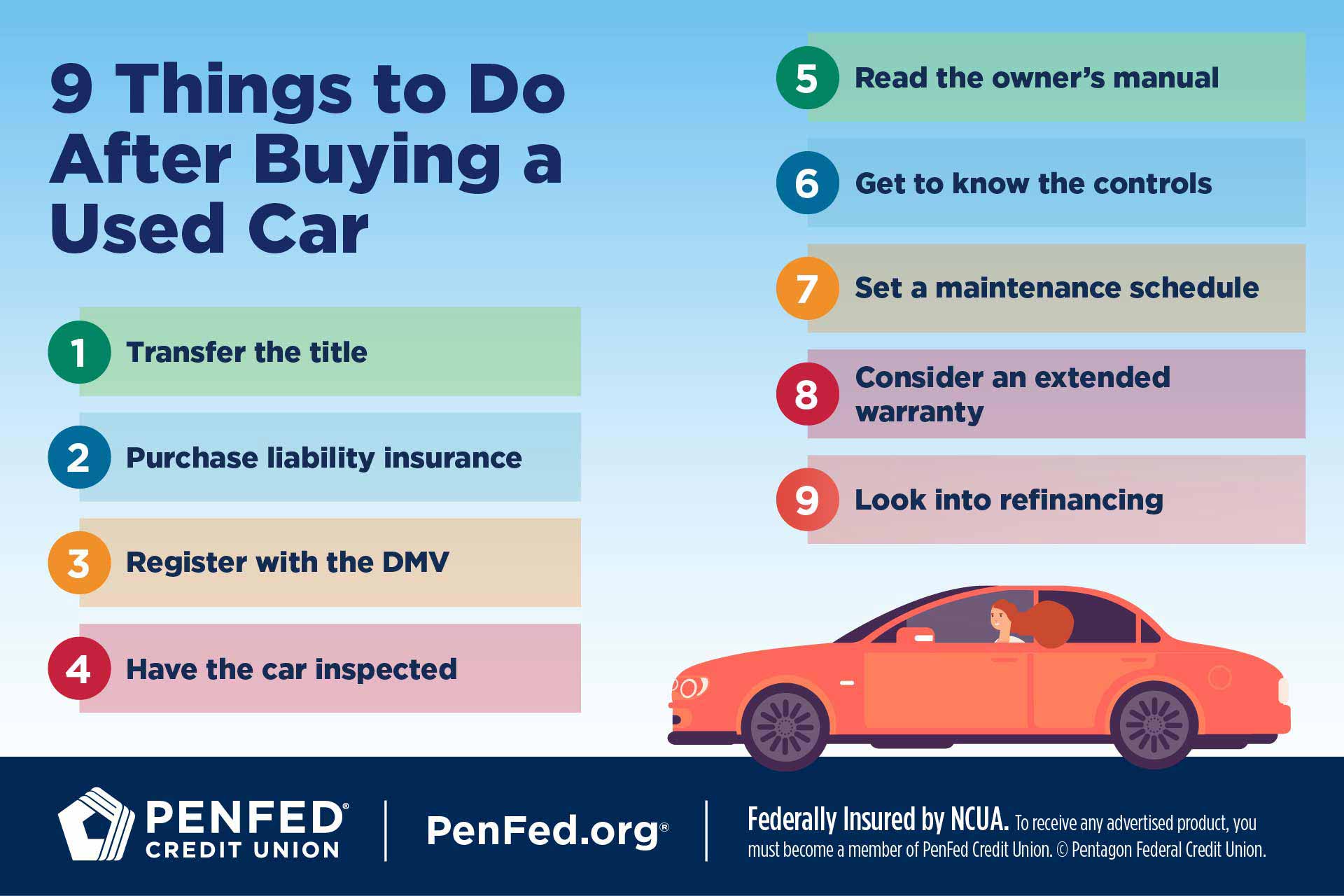
Once the purchase is complete, the new owner should schedule a maintenance check-up to ensure the car is in good condition. It is important for the owner to understand their responsibilities in terms of regular maintenance and upkeep. This includes adhering to the recommended service intervals, such as oil changes, tire rotations, and brake inspections, as well as addressing any repairs or issues that may arise. By properly maintaining the car, the owner can ensure its longevity and optimal performance.
A. Schedule a maintenance check-up after purchase

After purchasing a used car, it is essential to schedule a maintenance check-up with a trusted mechanic. This will help identify any potential issues or repairs that need to be addressed to ensure the car is in good condition and running smoothly. Regular maintenance check-ups are crucial for the longevity and optimal performance of the vehicle.
B. Understand your responsibilities as the new owner of a used car

As the new owner of a used car, it is essential to understand your responsibilities. This includes regular maintenance, insurance coverage, and adhering to local traffic laws and regulations. By fulfilling these responsibilities, you can ensure the longevity and safe operation of your vehicle.
Conclusion
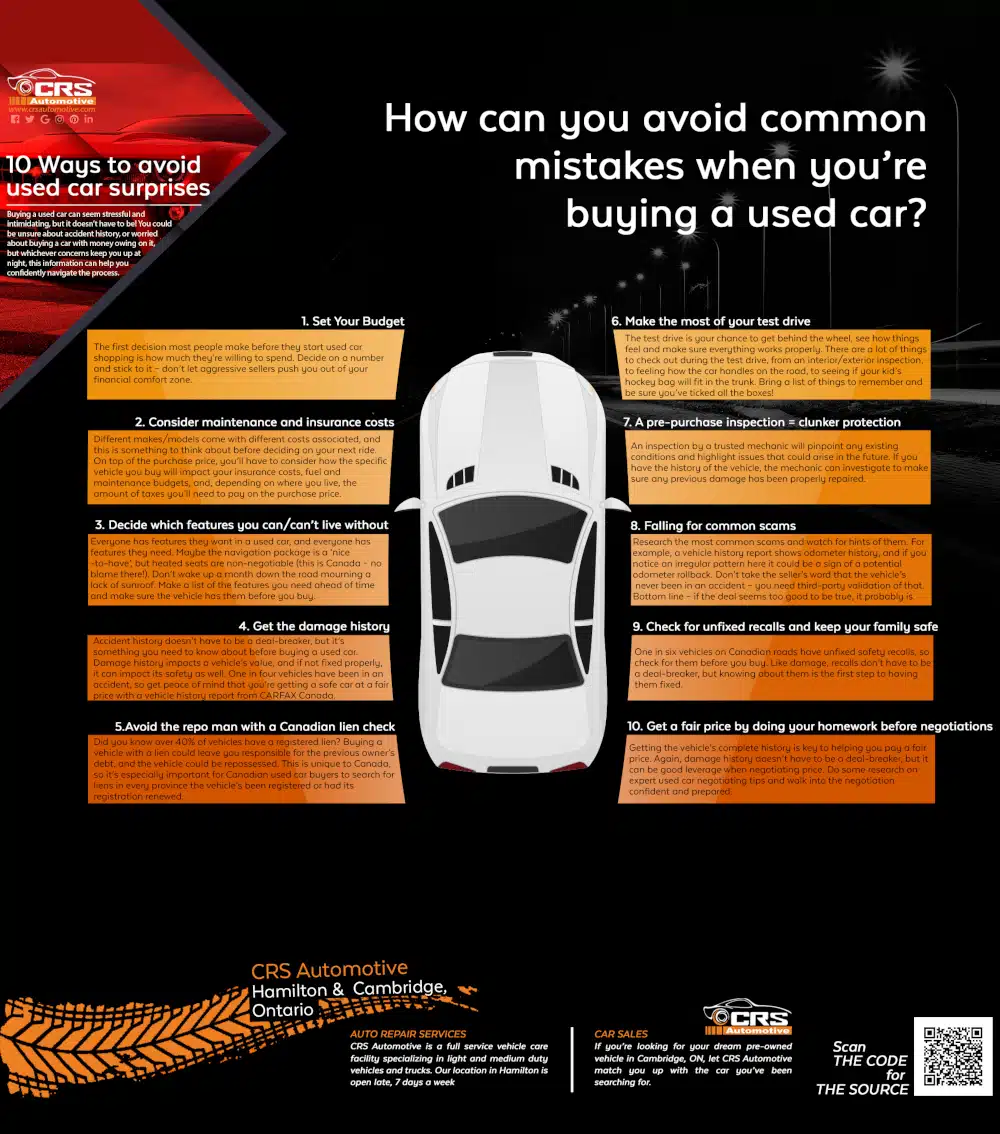
In conclusion, following these essential tips for safely purchasing a used car will help you make an informed decision and ensure a smooth ownership experience. Remember to prioritize research, inspections, documentation, and maintenance for a successful purchase. For further assistance, consult the additional resources provided.
A. Recap of the essential tips for safely purchasing a used car

When purchasing a used car, it is essential to determine your budget and needs, research different car models, inspect the car's condition, obtain its history report, negotiate the price, transfer the title and registration, and schedule maintenance check-ups. Following these tips will help ensure a safe and successful purchase.
B. Additional resources for further assistance

There are several additional resources available to provide further assistance when purchasing a used car. Prospective buyers can consult trusted automotive websites, seek advice from knowledgeable friends or family members, or visit reputable car dealerships for expert guidance. These resources can offer valuable insights, tips, and advice to ensure a safe and successful used car purchase.